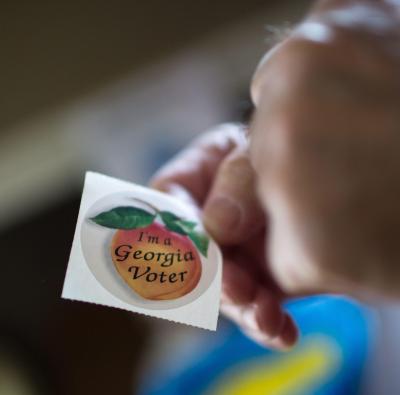The Federal Election Campaign Act (FECA) prohibits corporations from making contributions to federal candidates and political parties. This prohibition applies to in-kind contributions, including coordinated spending on election activities between a political party and a corporation.
On March 31, 2021, CLC Action, Common Cause Georgia and Treaunna C. Dennis filed an administrative complaint with the FEC alleging that True the Vote and the Georgia Republican Party (Georgia GOP) violated these contribution restrictions when True the Vote provided a variety of election-related services for the benefit of the Georgia GOP during the 2021 U.S. Senate runoff campaign in Georgia. The complaint also alleges that the Georgia GOP violated FECA’s disclosure requirements by failing to report its receipt of those valuable services as in-kind contributions.
As the complaint explained, in December 2020, True the Vote — a national nonprofit corporation that claims to be focused on “election integrity” — announced that it had received a “request from the Georgia Republican Party” for assistance with signature verification, ballot drop box monitoring, and other election-related activities. The same day, True the Vote announced in a press release its “partnership with the Georgia Republican Party to assist with the Senate runoff election process,” and quoted the Georgia GOP Chairman noting that the party was “grateful” for True the Vote’s help. Days after announcing its partnership with the Georgia GOP, True the Vote challenged the eligibility of more than 360,000 Georgia voters.
The complaint alleged that True the Vote violated FECA by making what amounted to prohibited in-kind contributions to the Georgia GOP, and the Georgia GOP violated FECA by accepting these contributions and failing to report them.
In response to the complaint, the FEC’s Office of General Counsel issued a detailed report analyzing the facts and recommending that the FEC find “reason to believe” that True the Vote and the Georgia GOP violated FECA and recommending further investigation. Despite this recommendation and the compelling evidence underlying it, the FEC failed to muster the four votes necessary to move forward with an investigation, and the complaint was dismissed on August 11, 2022.
Two of the Commissioners who voted to dismiss the complaint released a statement providing their reasoning. They claimed, among other things, that True the Vote’s activities, including the trainings, hotlines, and actions challenging the eligibility of hundreds of thousands of Georgia voters, were not undertak en “for the purpose of influencing an election,” and thus were not covered by FECA. They also claimed that True the Vote’s use of the term “partnership” to describe the relationship with the Georgia GOP was “colloquial” and did not support a finding that the groups had coordinated.
However, the evidence made clear that True the Vote’s activities were indeed undertaken to influence the Georgia runoff election. And by the groups’ express admission, these activities were conducted at the “request” of and in “partnership” with the Georgia GOP. The reasoning in the statement by the two Commissioners is contrary to law and would render the important protections in FECA meaningless if allowed to stand. CLC Action has thus filed suit on behalf of Common Cause Georgia and its Executive Director to challenge the FEC’s unjustified dismissal of their administrative complaint.
This suit, filed on October 7, 2022, is about ensuring that the FEC does its job, including investigating well-supported allegations of illegal, undisclosed coordination between a political party and a corporation to influence the outcome of a hotly contested election for U.S. Senate.
What's at Stake
The Federal Election Campaign Act (FECA) prohibits contributions—including in-kind contributions in the form of coordinated expenditures—from a corporation like True the Vote to a party committee. The Georgia GOP did not disclose any contributions from True the Vote or payments made to True the Vote in connection with their self-described “partnership” during the 2021 Georgia runoff. Despite this, the FEC failed to muster the four votes necessary to move forward with an investigation.
The public statements and overt coordination documented in the administrative complaint filed by Common Cause Georgia, Treaunna C. Dennis and CLCA represent an aggressive disregard for the laws intended to protect the integrity of our elections and keep voters informed about who is spending money to influence their ability to vote. The FEC’s refusal to act to address these clear violations is contrary to federal law.
Georgia voters — and all voters around the country — have a right to know who is spending money to influence their elections, and the American people deserve an FEC that will enforce campaign finance laws and hold those who violate the law accountable.
